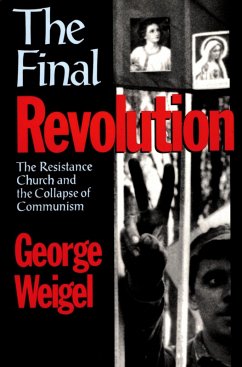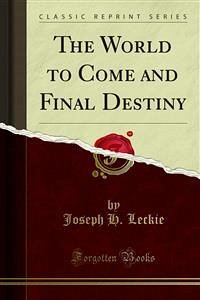The collapse of communism in central and eastern Europe--the Revolution of 1989--was a singularly stunning event in a century already known for the unexpected. How did people divided for two generations by an Iron Curtain come so suddenly to dance together atop the Berlin Wall? Why did people who had once seemed resigned to their fate suddenly take their future into their own hands? Some analysts have explained the Revolution in economic terms, arguing that the Warsaw Pact countries could no longer compete with the West. But as George Weigel argues in this thought-provoking volume, people don't put their lives, and their children's futures, in harm's way simply for better cars, refrigerators, and TVs. Something else--something more--had to happen behind the iron curtain before the Wall came tumbling down. In The Final Revolution, Weigel argues that that "something" was a revolution of conscience. The human turn to the good, to the truly human, and, ultimately, to God, was the key to the political Revolution of 1989. Weigel provides an in-depth exploration of how the Catholic Church shaped the moral revolution inside the political revolution. Drawing on extensive interviews with key leaders of the human rights and resistance movements, he opens a unique window into the soul of the Revolution and into the hearts and minds of those who shaped this stirring vindication of the human spirit. Weigel also examines the central role played by Pope John Paul II in confronting what V'aclav Havel called communism's "culture of the lie," and he suggests what the future role of the Church might be in consolidating democracy in the countries of the old Warsaw Pact. The "final revolution" is not the end of history, Weigel concludes. It is the human quest for a freedom that truly satisfies the deepest yearnings of the human heart. The Final Revolution illustrates how that quest changed the face of the twentieth century and redefined world politics in the year of miracles, 1989.
Dieser Download kann aus rechtlichen Gründen nur mit Rechnungsadresse in A, B, BG, CY, CZ, D, DK, EW, E, FIN, F, GR, HR, H, IRL, I, LT, L, LR, M, NL, PL, P, R, S, SLO, SK ausgeliefert werden.


